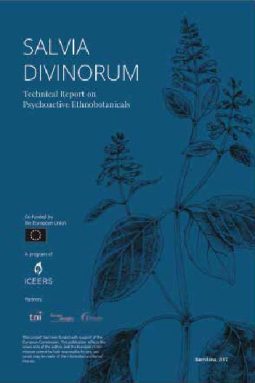Science and economic, social and cultural rights: What place do teacher plants have in freedom of research frameworks and the right to enjoy the benefits of scientific progress?
One of the pillars ICEERS’s approach is to promote the harmonization and implementation of drug policies based on human rights, evidence and community participation, with special attention paid to the challenges arising from the globalization of the use of traditional plants, such as ayahuasca, coca leaf, iboga, peyote, and cannabis. One of our key strategies is to generate scientific evidence and educating about the effects, risks, and potential benefits of psychoactive plants used traditionally by indigenous peoples. At ICEERS, science and human rights come together to highlight the importance of the eventual integration of conventional science with the ancestral, native and indigenous knowledge of the holders of traditional knowledge from other cultural systems.
Within this agenda, we have outlined a path to engage with various international bodies to raise the importance of the intersection of the right to science as contemplated in Article 15 of the International Covenant on Economic, Social and Cultural Rights (ICESCR) in all its dimensions (“the right to enjoy the benefits of scientific progress and the indispensable freedom for scientific research”), as well as the intersection with other rights, to be integrated into the epistemologies informing drug policies and the impact that science (or the absence of it) has had on the discourse on these policies.
We have built alliances with other organizations, such as MAPS (Multidisciplinary Association for Psychedelic Studies) and Asociacione Luca Coscione, to share the importance of the right to science and freedom of research with controlled substances at the United Nations Commission on Narcotic Drugs (CND, based in Vienna). Read more here.
Master plants and freedom of research
Recently, the Committee on Economic, Social and Cultural Rights (the UN body that is the highest interpreter of the ICESCR and that monitors implementation by its member states) issued its 25th General Comment on “Science and economic, social and cultural rights.” Prior to its publication, the Committee opened a consultative process with members of civil society, NGOs, participating States, researchers and other institutions working in this field, inviting them to send their contributions to the Committee. In this way, the body could interpret and incorporate the essential content of this right based on the experience of other international actors. Read ICEERS’s contributions here.
Our submission is relevant to the field of drug policy because in recent years we have seen that it is through various human rights bodies (based in Geneva) that a more sensible and holistic understanding of drug policy has been adopted by those bodies based in Vienna. However, it is important to note that, in its Annual Report for 2019, the International Narcotics Control Board (INCB) recognized that “if the drug control measures adopted by States violate internationally recognized human rights standards, they also violate the international drug control conventions.” This is one of the most progressive interpretations and concessions made by the INCB; in this same report the INCB has articulated that States must adopt policies that respect human rights and protect the health of humanity.
Categories:
NEWS
, HUMAN RIGHTS
, RESEARCH & INNOVATION
Tags:
Human Rights
, scientific research
, psychoactive plants


